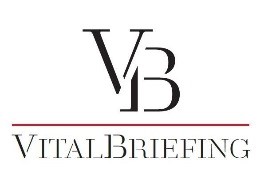Mandatory sustainability reporting gets closer for EU companies
Large EU companies and those from abroad that do business in Europe are bracing for the progressive introduction starting next year of the EU's Corporate Sustainability Reporting Directive, which will eventually apply to at least 50,000 businesses. The European Parliament has rejected a proposal by a group of MEPs to abolish the system of standards that will underpin reporting under the directive, which will start at the beginning of 2025 covering the previous financial year. The requirements will be progressively extended over the coming years to a widening group of companies, playing an important role in providing the data needed by asset managers and other investors in fulfilling their own disclosure requirements under the Sustainable Finance Disclosure Regulation and other voluntary and regulatory sustainability transparency schemes.
European Parliament votes down motion seeking to scrap sustainability reporting standards
The European Parliament has voted against a motion introduced by 40 MEPs to scrap the European Sustainability Reporting Standards, an essential element of the Corporate Sustainability Reporting Directive, which is set to apply to 50,000 companies in the EU starting from financial years beginning in January 2024. The EFRAG independent advisory group is drawing up the standards and has obtained a high level of interoperability with the international Global Reporting Initiative in areas such as definitions, concepts and disclosures on impacts of corporate activities. Mandatory reporting will also subsequently apply to non-EU companies that operate within the EU.
Best source: ESG Clarity
See also: World Wide Fund for Nature
Just 4% of companies worldwide fully comply with Taskforce on Climate-related Financial Disclosures recommendations
Only 4% of companies worldwide comply fully with the 11 disclosures recommended by the Taskforce on Climate-related Financial Disclosures, according to the body’s sixth and final status report. In 2022, companies averaged alignment with just 5.3 of the recommendations, albeit up from 3.2 in 2020. The task force’s chairman Michael Bloomberg says the improvement has already provided greater transparency to financial markets on climate risks and opportunities, but more work needs to be done.
Best source: ESG Clarity
Men still dominate management of smaller banks in Luxembourg: CSSF survey
Almost 97% of the management boards of small banks in Luxembourg are composed mostly of men, and around 25% contain no women at all, according to a survey of 46 less sizeable institutions launched in April by financial regulator CSSF. In addition, around a quarter of banks did not have a diversity policy as of the end of last year, according to the European Banking Authority, which says women accounted for 38% of executive and non-executive director appointments between 2018 and 2021. The CSSF says that it will monitor the situation and could impose sanctions on banks that fail to take action to improve gender equality.
Best source: ABBL
See also: CSSF (in French)
Luxembourg-based firm to audit financial results of troubled Adler Group for 2022 and 2023
Luxembourg-domiciled property business Adler Group has announced that Avega Revision will audit its financial statements for 2022 and 2023. The company reported a loss of €1.65bn for last year and of nearly €1.2bn for 2021, but the results were not officially audited as a result of a dispute with KPMG that led to the audit firm stepping down in May last year. In June, the Luxembourg office of Adler Real Estate, along with those in six other countries, were raided by prosecutors from Frankfurt examining allegations of false accounting, breach of trust and market manipulation.
Best source: Wort (in German)
See also: Luxembourg Times
See also: Bloomberg
Court orders winding-up of Fortuna Banque after customers complain of unreturned assets
The final dissolution and winding up of Fortuna Banque has been ordered by the Luxembourg District Court, according to financial regulator CSSF. The relatively small 114-year-old Luxembourg-based co-operative private bank experienced growing financial trouble in recent years and unsuccessfully sought a buyer before finally announcing it would close and agreeing to transfer its clients' business to Banque et Caisse d’Épargne de l’État in August 2022. Fortuna's balance sheet has since been reduced by more than 85%, but the regulator says its operational processes could no longer ensure that cash inflows from the bank’s few remaining loans would meet operational costs and the return of deposits. Customers still owed money by Fortuna Banque may be reimbursed by Luxembourg’s deposit guarantee fund.
Best source: Luxembourg Times (subscription required)
See also: Luxembourger Wort (subscription required)
See also: CSSF
Three-quarters of companies worldwide not ready for rules requiring ESG audits: KPMG
Three-quarters of companies worldwide are not ready for external audits of their sustainability data ahead of the entry into force of legislation that will make it mandatory in the EU and possible new rules in countries adopting the International Sustainability Standards Board requirements, according to consultancy KPMG. Its survey of 750 firms found that only 25% believe they are prepared for the new rules, which for some companies will apply to 2024 reporting under the EU's Corporate Sustainability Reporting Directive. Regulators say audits are necessary to ensure investors receive reliable environmental claims and are protected from greenwashing.
Best source: Reuters (free registration)
See also: ESG today
Barclays warns that Commission’s rethink of SFDR categorisation could create obstacle to ESG fund inflows
The European Commission’s consultation on a review of the Sustainable Finance Disclosure Regulation could disrupt client flows into green and other ESG funds, according to analysts at Barclays. They note that the Commission has raised the possibility of replacing the current article 6, 8 and 9 designations with a completely different fund labelling regime, which could involve much more rigidly defined terminology. Barclays argues that investment in sustainability leaders as well as controversial and high-emitting sectors is most at risk from any significant change in the framework.
Best source: Bloomberg (subscription required)
Former Wirecard chairman testifies to failed efforts to bring management into line
The former chairman of Wirecard, Thomas Eichelmann, has described to a Munich court his failed attempt to impose discipline on the management of the collapsed payment group. He testified that his period as a board member and subsequently chairman largely coincided with the special audit by KPMG, which he initiated in autumn 2019. Eichelmann said the board was in broad agreement not to renew the contract of chief operating officer Jan Marsalek, and he dismissed him once it became clear that trustee accounts supposedly containing €1.9bn in earnings from third-party business in Asia did not exist.
Best source: Börsen-Zeitung (subscription required, in German)
Singapore authority bans former Three Arrows Capital executives from regulated activity for nine years
The Monetary Authority of Singapore has banned Three Arrows Capital's former CEO Zhu Su and chairman Kyle Livingston Davies from regulated activity for nine years for failing to provide information about the hedge fund manager's employment of a portfolio manager and claiming he did not carry out a regulated activity. The regulator also faulted Three Arrows for not having a risk management framework for crypto-currency and digital assets. The bankrupt firm, which is embroiled in litigation with the liquidators of FTX and other collapsed crypto businesses over outstanding debts, was reprimanded in June 2022 for failure to inform the MAS about changes in board membership and in shareholdings of Zhu and Davies, and exceeding the regulator's limits on assets under management. Three Arrows managed as much as $10bn in March 2022 but became insolvent following the collapse two months later of US dollar-pegged stablecoin terraUSD. Zhu was arrested last month at Singapore's Changi Airport while apparently attempting to flee the country. He and and co-founder Davies, who is still at large, have been sentenced to four months' imprisonment for failing to comply with court orders compelling him to cooperate with liquidator Teneo’s investigation into creditors’ claims.
Best source: International Investment
See also: CNBC
Chairwoman of Swedish pension fund resigns following regulatory probe of investment missteps
Ingrid Bonde, chairwoman of Sweden's biggest pension fund Alecta, has resigned with immediate effect after the country's Finansinspektionen regulator launched an investigation into poor investments, including stakes in failed regional US banks, such as Silicon Valley Bank, as well as in troubled domestic real estate group Heimstaden Bostad. Bonde dismissed Alecta's CEO Magnus Billing six months ago over the $2bn loss on investments in US banks. The pension fund has $110bn in assets and 2.8 million members.
Best source: Financial Times (subscription required)
Powered by




